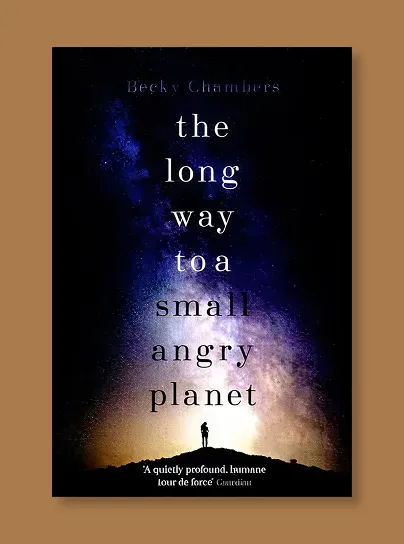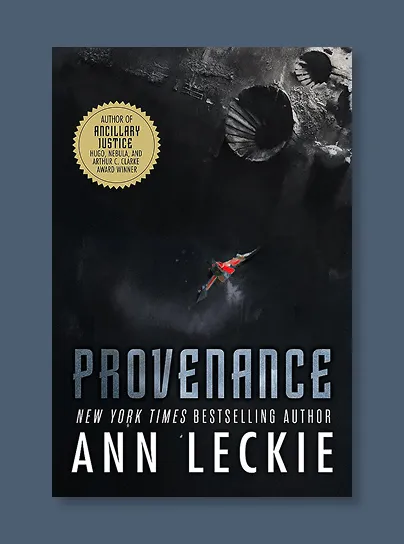
A Prayer for the Crown Shy
Book 2 in the Monk and the Robot series
A short novella, like the first book, this one continues the adventure of a non-binary monk and a kind, nature-loving robot. The robot has been tasked with finding out what humans need and the monk has agreed to bring him around to various villages, towns, and the big City.
They live on a moon that orbits a giant, striped planet, which consists of one small continent surrounded by water. Humanity was on the verge of destroying itself with technology right about the time that the machines woke up and walked away. Before they left to go live in the wilderness, the robots made a Parting Promise to someday return to ask how they might help.
“Everybody has a negative balance from time to time, for lots of reasons. That’s fine. That’s part of the ebb and flow. But if someone had a huge negative … well, that says they need help. Maybe they’re sick. Or stuck. Maybe they’ve got something going on at home. Or maybe it’s just one of those times when they need other people to carry them for a while. That’s okay. Everybody ends up there sometimes. If I saw a friend’s balance and it was way in the red, I’d make a point of checking in.”
“You can see other people’s balances?”
“Yeah, of course. It’s all public.”
“Does that not get competitive?”
Dex squinted. “Why would it?”
Along their journey, Dex, the monk, and Mosscap, the robot, wrestle with existential ideas of intrinsic worth, what we really need in life, love, friendship, and how to live in harmony with Nature.
It’s a lovely book, well-written, and with a tenderness that is unusual in science fiction. There are some really beautiful turns-of-phrase in both books. And while the concepts are deep, they are wrapped in a deceptively simple story.
Finding the ocean was as simple a matter as letting a river lead you in the direction it wanted to go most.
When I was younger, I used to wonder why a story had to have a bad guy or why bad stuff had to happen to the protagonist. Talking with other people about it, I was told that unless the protagonist overcomes something difficult, there is no story. And while I didn’t like that answer, I believed it. This set of novellas proves that theory wrong.
The sand beneath Dex’s bare feet became wetter with every step, squishing up around their soles. The edge of a wave ran over their toes, caressing them with a liquid hello.
In these books, the worst thing that happens is that a tiny piece of Mosscap breaks and needs a replacement and Dex lies to his father. Most of the action happens internally to the characters and as we follow along we are swept up in the awe Mosscap feels for Nature which allows us to see it too, with fresh wonder-filled eyes.
They’d been fishing bunches of times, had plenty of fish die in their immediate vicinity, eaten more of their kind than they could count. But as they tried to watch as Mosscap did, they became uncomfortable, almost like they were witnessing something that wasn’t their business. But it was their business. They were the one who’d pulled the fish out of its watery home. They were the one who’d stepped in and decided that it was time for something’s life to be over because they were hungry and their own life required it.
Mosscap was right to look as unflinchingly as it did. Dex was ashamed that they hadn’t, before.
Mosscap reached out its hand. With an aching gentleness, it lay its fingers on the animal’s dying body. Its eyes became focused, and it bowed its head closer.
“It’s all right,” Mosscap murmured, its metallic voice thick with respect and sorrow. “I know. It’s not fair. But it’s all right. It’ll be over soon.”
A great story to read to children.



